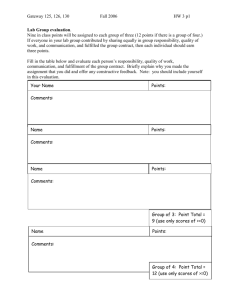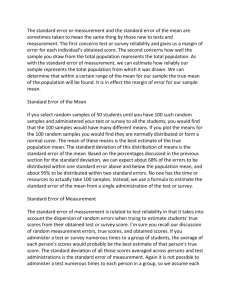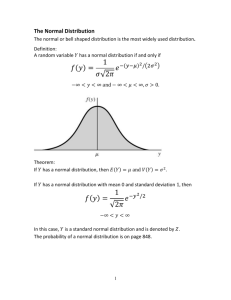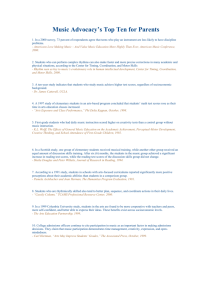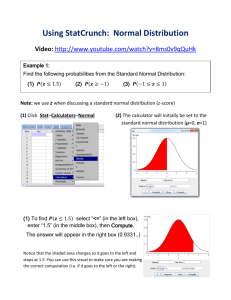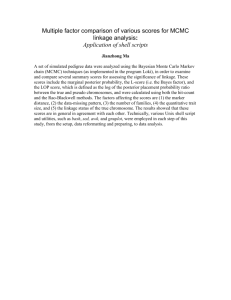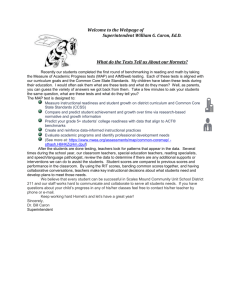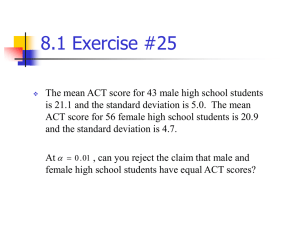What Is a Genius IQ Score?
advertisement
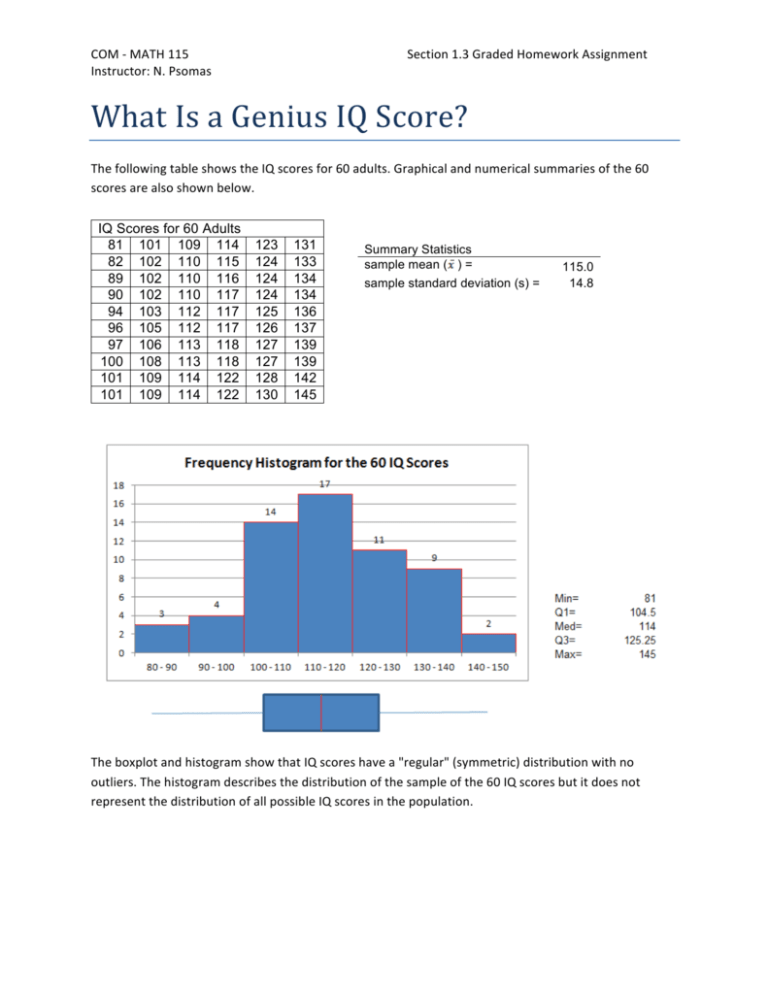
COM -­‐ MATH 115 Instructor: N. Psomas Section 1.3 Graded Homework Assignment What Is a Genius IQ Score? The following table shows the IQ scores for 60 adults. Graphical and numerical summaries of the 60 scores are also shown below. IQ Scores for 60 Adults 81 101 109 114 82 102 110 115 89 102 110 116 90 102 110 117 94 103 112 117 96 105 112 117 97 106 113 118 100 108 113 118 101 109 114 122 101 109 114 122 123 124 124 124 125 126 127 127 128 130 131 133 134 134 136 137 139 139 142 145 Summary Statistics sample mean ( ) = sample standard deviation (s) = 115.0 14.8 The boxplot and histogram show that IQ scores have a "regular" (symmetric) distribution with no outliers. The histogram describes the distribution of the sample of the 60 IQ scores but it does not represent the distribution of all possible IQ scores in the population. Population Distribution of IQ Scores -­‐-­‐ The Normal Distribution The distribution of all IQ scores is an example of a distribution known as the Normal distribution. The abbreviation "IQ" comes from the German term Intelligenz-­‐Quotient (Intelligence Quotient), originally coined by psychologist William Stern. IQ tests are designed so that the mean IQ score is 100, with a standard deviation of 15. Approximately 95% of the population scores within two SDs of the mean, i.e. has an IQ between 70 and 130. Sixty-­‐eight percent of IQ scores fall within one standard deviation of the mean. So that means that the majority of people have an IQ score between 85 and 115. Intelligence Tests Source: http://psychology.about.com/od/psychologicaltesting/f/genius-­‐iq-­‐score.htm Today's intelligence tests are based largely on the original test devised in the early 1900's by French psychologist Alfred Binet. In order to identify students in need of extra assistance in school, the French government asked Binet to devise a test that could be used to discover which students most needed academic help. Based on his research, Binet developed the concept of mental age. Certain questions he posed were easily answered by children of certain age groups. Some children were able to answer questions that were typically answered by children of an older age -­‐ these children had a higher mental age than their actual chronological age. Binet's measure of intelligence was based on the average abilities of children of a particular age group. A Breakdown of IQ Scores • • • • • • • • • • • 1 to 24 -­‐ Profound mental disability 25 to 39 -­‐ Severe mental disability 40 to 54 -­‐ Moderate mental disability 55 to 69 -­‐ Mild mental disability 70 to 84 -­‐ Borderline mental disability 85 to 114 -­‐ Average intelligence 115 to 129 -­‐ Above average; bright 130 to 144 -­‐ Moderately gifted 145 to 159 -­‐ Highly gifted 160 to 179 -­‐ Exceptionally gifted 180 and up -­‐ Profoundly gifted Genius IQ Scores So what is considered a genius IQ score? Generally, any score over 140 is counted as a high IQ. A score over 160 is considered by many to be a genius IQ score. Scores that are 200 and over are often referred to as "unmeasurable genius." Take Home Assignment #3 Use the normal distribution of IQ scores with mean 100 and standard deviation 15 to do the following exercises: (1) Compute the percent of the population with IQ scores falling in each of the 11 breakdown categories of IQ scores: (a) using Table A, and (b) using TI 83/84. (2) Compute the 1st, 2nd, & 3rd deciles of the IQ distribution (3) Compute the 1st & 3rd quartiles of the IQ distribution (4) Compute the 80th & 90th percentiles of the IQ distribution.
